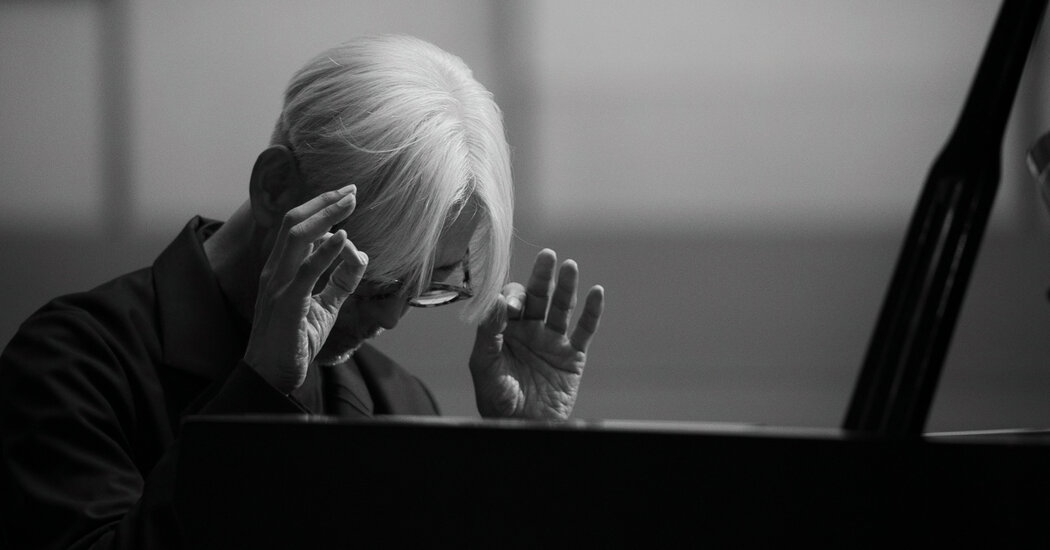Sakamoto filmed the concert over a week in September 2022. He and the film’s director, his son, Neo Sora, meticulously designed the look of the movie, including storyboards to show how the lighting would change. It is a kind of monochromatic take on the shifting of light as morning turns to afternoon, then evening. By the end, Sakamoto appears to be playing in inky blackness, with one light standing in for the moon shining over his left shoulder.
The reason for this interest in invoking the passage of time is simple: Sakamoto knew his days were numbered. In 2014, he was diagnosed with throat cancer. His recovery was documented in the 2018 film “Ryuichi Sakamoto: Coda,” but in 2021 he was diagnosed with rectal cancer. He died in March 2023, about six months after filming “Opus,” at age 71.
Sakamoto is, for the most part, not visibly affected in the film. Piano performance is more demanding than it might appear, but Sakamoto’s face shows, for the most part, sheer joy — an invigorated happiness at the privilege of having put these notes together, of being able to enjoy them anew. Yet at one moment about halfway into the film, he struggles to recall a certain passage, and murmurs about being exhausted. It’s briefly surprising, a sudden note of fallibility injected into what was appearing to be a perfect performance. This, we realize, is difficult, and draining — a life’s work packed into a week.
Included in the musical selections are some numbers that Sakamoto hadn’t previously performed as solo piano arrangements, like “The Wuthering Heights” (composed as the theme for the 1992 film). There are new arrangements of old songs, such as “Tong Poo,” which was first released as a single from the 1978 synth-pop debut album of Sakamoto’s band, Yellow Magic Orchestra. And there are familiar favorites, especially “Merry Christmas Mr. Lawrence,” composed for the 1983 film, in which Sakamoto also starred alongside David Bowie.
But for me, the songs aren’t the point of “Opus.” The camerawork, performance, lighting and music all add up to something larger than their individual parts. One audible element is Sakamoto’s use of the pedals, which on a grand piano have different purposes, all designed to alter the life and timbre of the note.


